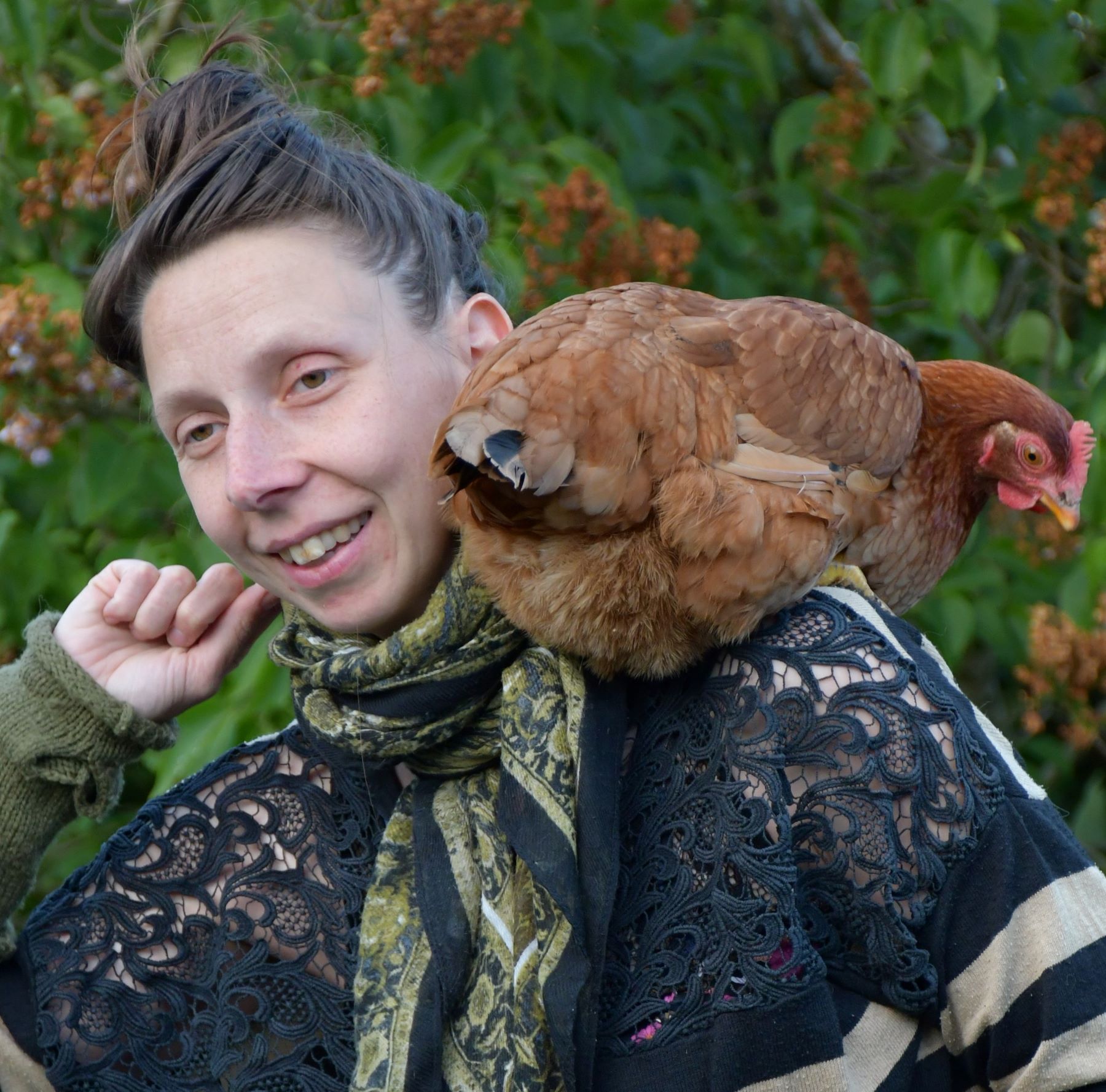
Report lead author Jenny Mace with one of her own hens, Dotty.
The UK’s backyard chicken owners are far from hard boiled when it comes to their feathered friends according to a new study by academics from the University of Winchester.
Research conducted by Jenny Mace, Lecturer in Animal Welfare, and Andrew Knight, Professor of Animal Welfare and Ethics, found that most domestic chicken owners treat their birds as pet rather than egg-producers.
Out of 2,000 surveyed more than two thirds (68.8 per cent) disagreed with breeding hens for maximum egg production. Nearly all respondents (98.44 per cent) continued to care for their hens after they stopped laying.
Almost all (93.6 per cent) would never kill their chickens for consumption and 76.3 per cent did not see chickens as “morally less important” than dogs.
With a population estimated at five million, non-commercial chickens make up the third largest pet group in the UK after dogs and cats but there has been limited research into their welfare or the care-taking practices and attitudes of their owners.
The small number of previous studies had concentrated on biosecurity practices.
Lead author Jenny, who carried out the research in her spare time, became interested in poultry when she began looking after ex-commercial laying hens, in 2018.
Her study entitled From the Backyard to Our Beds: The Spectrum of Care, Attitudes, Relationship Types, and Welfare in Non-Commercial Chicken Care shows a move away from treating chickens as livestock towards regarding them as pets.
“In the same way that dogs were once kept in the back yard and then were allowed in the house and now many people sleep with them on their beds, we have changed our attitudes towards chickens,” said Jenny.
“The phenomenon whereby respondents would never dream of killing and consuming their own chickens, but buy chicken meat from other sources is interesting and warrants further research and enquiry.”
The Winchester study was also carried out to collect data on some more niche and hitherto un-investigated care-taking practices, such as the use of the Suprelorin® - a hormone implant, the size of a grain of rice, which can be inserted under the skin to cause a break or cessation in egg laying by hens for health benefits.
This treatment can prevent egg yolk peritonitis, a major cause of death in domestic hens. However, 68 per cent of the chicken owners surveyed had not heard of the drug and only six per cent had used it.
Jenny said the survey showed a general lack of affordable veterinary information and care for domestic poultry owners.
The survey also looked at the demographics of the owners and found that 86.9 per cent of those who replied to the survey were women and more than 60 per cent fell into the age groups 45-54 or 55-64.
The average respondent could be described as a white female professional, British, aged between 45 and 54, university-educated, a homeowner living ruraly in a detached house with a large garden, living with her spouse/partner without children, a guardian of other animals, and following a “standard omnivore” diet.
Hybrid/ISA Brown was the most common breed/type of chicken cared for, which was selected by 69.9 per cent of respondents. The next most common breed/type was bantam, selected by 16.6 per cent.
Back to media centre